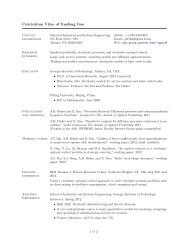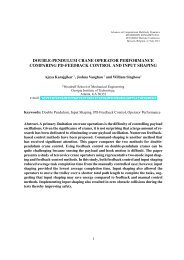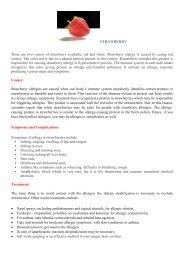Engineering Ethics (PHIL 3109) - Prism Web Pages
Engineering Ethics (PHIL 3109) - Prism Web Pages
Engineering Ethics (PHIL 3109) - Prism Web Pages
Create successful ePaper yourself
Turn your PDF publications into a flip-book with our unique Google optimized e-Paper software.
P H I L 3 1 0 9 F A L L 2 0 1 1<br />
<strong>Engineering</strong> <strong>Ethics</strong><br />
Dr. Michael Hoffmann<br />
Focus<br />
In order to make sound ethical decisions, it is not enough for engineering professionals to know<br />
what is right and what is wrong. They should be able to analyze complex decision situations and illstructured<br />
problems in a way that all the involved stakeholders can be identified, their varying perspectives<br />
and values be understood, positions be justified in reasoned dialogue, and possible alternative<br />
courses of action or solutions must be imagined.<br />
This class offers an opportunity to acquire the skills necessary for these objectives; primarily in<br />
projects that will be performed in small groups of students. We will use the newly developed interactive<br />
<strong>Web</strong> application “AGORA: Participate—Deliberate!” to identify, reconstruct, and visualize<br />
the argumentations of stakeholders in graphical form. Additionally, this class provides an introduction<br />
to ethical theories, codes, and concepts that are relevant for professional decision making.<br />
Learning by doing<br />
The focus of this class is on reading, writing, discussing, re-writing, collaboration on problems in<br />
small groups, and group presentations in class.<br />
Our class meetings on Tuesday will be reserved for discussions about theoretical and practical aspects<br />
of engineering ethics. To prepare these discussions, you will find on T-Square (under “Assignments”)<br />
a few questions for each week that allow us to focus on the readings’ central points.<br />
Your job is to read the texts, to answer all these questions in about one page, and submit your answers<br />
via T-Square. The idea is that we are best prepared for our discussions when we have<br />
already grappled at home with the ideas we will focus on in class.<br />
One interesting aspect of this will be to see how many different answers, interpretations, and arguments<br />
are possible. Our discussions will reveal these differences, and they will give you an opportunity<br />
to reflect critically on what you have done individually at home, and also an opportunity to<br />
improve your own thinking by learning from others. That is what is most important for learning. I<br />
am not interested in what you already know, but in how you improve your own thinking. To do this,<br />
your second task in each week will be to revise the answers you formulated for the preparation of<br />
the discussions. You will see that you are much better prepared for our discussions when you have<br />
already written something in advance. And I hope that our discussions will motivate you to improve<br />
these writings in a second round of reflections at home again.<br />
On Thursday, we will mainly work in small groups. The goal is to learn how to analyze and clarify<br />
ill-structured issues that are controversial and ethically important. We do so by identifying the positions<br />
of those who have a stake in an issue or are involved by the consequences of decisions, and by<br />
reconstructing their justifications for these positions in the form of argumentations. This will be<br />
done by means of the interactive and web-based argument visualization software “AGORA-net:<br />
Participate – Deliberate!”<br />
1 / 6
P H I L 3 1 0 9 F A L L 2 0 1 1<br />
Over the entire semester, three phases can be distinguished for the group work. In the first phase,<br />
you need to become familiar with the AGORA software and learn how to map the structure of an<br />
argumentation or a simple debate. In the second phase, each group will apply and train their argument<br />
mapping skills in the analysis of one stakeholder position on a controversial technology. In<br />
this class, we will focus on the production of genetically modified (GM) plants and food. You have<br />
to sign up in T-Square for one of seven stakeholder positions. By focusing on just one position,<br />
your group should be able to acquire an in-depth understanding of this position, its justification, and<br />
its limits and weaknesses. All groups will then present their argument maps in class so that a debate<br />
about all the different perspectives becomes possible. If possible, bring a laptop to class on<br />
Thursday.<br />
In the third phase, finally, groups are confronted with the task to develop a clear and convincing position<br />
to an open-ended decision problem. Whereas in Phase 2 stakeholder positions are given, the<br />
challenge here is to imagine possible stakeholder perspectives and their respective justifications.<br />
To prepare a constructive collaboration in your group, you have to read some material and submit<br />
an assignment before you come to class. After the presentation of your group results in class, the<br />
groups have to revise their argument map based on class feedback. The final argument map will be<br />
submitted in T-Square.<br />
Readings<br />
Books to buy at the Engineers Bookstore or Barnes & Nobles:<br />
Harris, C. E., Pritchard, M. S., & Rabins, M. J. (2009). <strong>Engineering</strong> <strong>Ethics</strong>: Concepts and Cases<br />
(Paperback) (4. ed.). Belmont, CA: Wadsworth, Cengage Learning.<br />
Additional readings:<br />
(most of them can be downloaded from our course page at https://t-square.gatech.edu, folder “Resources.”<br />
The rest is available on reserve in the library)<br />
Collins, H. M., & Pinch, T. J. (1998). The Naked Launch: Assigning Blame for the Challenger Explosion.<br />
In H. M. Collins & T. J. Pinch (Eds.), The golem at large : what you should know<br />
about technology (pp. 30-56). Cambridge, UK New York: Cambridge University Press.<br />
Dostoyevsky, F. (1917). Crime and punishment (C. Garnett, Trans.). New York,: P. F. Collier &<br />
Son. Raskolnikov’s dream.<br />
Economist. (2007). Pricking consciences. What is good for the individual is not always best for society.<br />
The Economist, Mar 15th.<br />
Harris, C. E. (2008). The good engineer: Giving virtue its due in engineering ethics. Science and<br />
<strong>Engineering</strong> <strong>Ethics</strong>, 14(2), 153-164. doi: 10.1007/s11948-008-9068-3<br />
Held, V. (1995). The Meshing of Care and Justice. Hypatia 10(2 Spring), 128-132.<br />
Schick, T., & Vaughn, L. (2009). Doing Philosophy: An Introduction Through Thought Experiments.<br />
Boston: McGraw-Hill, pp.390-401.<br />
Lyons, D. (2001). utilitarianism. In L. C. Becker & C. B. Becker (Eds.), Encyclopedia of <strong>Ethics</strong><br />
(Vol. 3, pp. 1737-1744). New York Routledge.<br />
Vaughan, D. (1997). The Challenger Launch Decision: Risky Technology, Culture, and Deviance<br />
at NASA: University Of Chicago Press. (Excerpt 1 and 2)<br />
2 / 6
P H I L 3 1 0 9 F A L L 2 0 1 1<br />
Zimbardo, P. G. (2007). Revisiting the Stanford Prison Experiment: a Lesson in the Power of Situation.<br />
The Chronicle Review, 53.<br />
Readings for the projects<br />
… are in the folder “Resources” in T-Square. For Phase 2, check the document “Stakeholder positions<br />
on GM food” for a list of these positions and a short description for each.<br />
Tools (links are in T-Square, folder “Resources”)<br />
• “Tools for Philosophy.” A document that lists encyclopedias (books and online) that can help<br />
if you have problems with philosophical terminology.<br />
• “Internet Resources” available at http://philosophy.gatech.edu.<br />
• AGORA-net: Participate – Deliberate! At http://agora.gatech.edu/. It would be nice if you<br />
could help to improve the AGORA software by reporting bugs or making suggestions. Send e-<br />
mails to agorabugreport@gmail.com.<br />
Schedule<br />
• “G” means: “group submission in T-Square after class. List the names of all group members<br />
in the “Assignment” section in T-Square.” Everything else are individual assignments.<br />
• “HPR” refers to Harris, C. E., Pritchard, M. S., & Rabins, M. J. (2009).<br />
Week Date Ass.<br />
due!<br />
Theme<br />
Readings<br />
1 Aug 23<br />
Aug 25<br />
Introduction, planning<br />
Group projects: Argument Mapping with<br />
AGORA at http://agora.gatech.edu/.<br />
Bring laptop!!<br />
AGORA exercises<br />
2 Aug 30 2.1.<br />
Sept 1<br />
3 Sept 6 3.1.<br />
Sept 8 2.2.<br />
4 Sept 13 4.1.<br />
Sept 15 3.2.<br />
Consequentialism: Maximizing Utility<br />
Group projects, presentations and discussions<br />
Deontological ethics: Kant and duty<br />
Critical Thinking Assessment<br />
Virtue ethics: The good engineer<br />
Group projects, presentations and discussions<br />
Lyons + Economist 2007<br />
AGORA exercises<br />
Schick & Vaughn<br />
Harris<br />
AGORA exercises<br />
5 Sept 20 5.1.<br />
Sept 22 4.2;<br />
5.3<br />
6 Sept 27 6.1.<br />
Sept 29 5.2;<br />
6.3.<br />
Why professional ethics?<br />
Prince Charles’ position on GM foods<br />
Responsibility in <strong>Engineering</strong><br />
Group work about positions on GM plants<br />
HPR ch. 1 + Case 7<br />
Project reader<br />
HPR ch. 2.1-7; Held<br />
Project reader<br />
7 Oct 4 7.1. Impediments to Responsibility Ch. 2.8-10; Dostoyevsky<br />
3 / 6
P H I L 3 1 0 9 F A L L 2 0 1 1<br />
Week Date Ass.<br />
due!<br />
8 Oct 11<br />
Theme<br />
Oct 6 6.2. Group work about positions on GM plants<br />
Oct 13 7.2.<br />
9 Oct 18<br />
Oct 20<br />
10 Oct 25 10.1<br />
Oct 27<br />
11 Nov 1 11.1.<br />
Nov 3 10.2;<br />
G.11<br />
12 Nov 8 12.1<br />
Nov 10 11.2.<br />
13 Nov 15 13.1.<br />
Nov 17 12.2;<br />
13.3.<br />
14 Nov 22 14.1.<br />
15<br />
16<br />
Nov 24 13.2.<br />
Nov 29 15.1.<br />
Dec 1 14.2<br />
Dec 6<br />
Dec 8<br />
Dec 10<br />
15.2.<br />
G.16<br />
Movie: The experiment (2001)<br />
Group work about positions on GM plants<br />
GT Fall break<br />
Group presentations and discussions<br />
Assigning Blame for the Challenger Explosion<br />
Group presentations and discussions<br />
Framing the problem<br />
Groups revise argument map<br />
Resolving problems<br />
Critical Thinking Assessment<br />
The social and value dimensions of technology<br />
Group work on cutting edge technology<br />
Trust and reliability<br />
GT School Holiday<br />
Risk and liability and <strong>Engineering</strong><br />
Group work on cutting edge technology<br />
Group presentations and discussions<br />
Group presentations and discussions<br />
Readings<br />
Collins & Pinch<br />
HPR ch. 3; Vaughan<br />
HPR ch. 4; Zimbardo<br />
HPR ch. 5<br />
Project reader<br />
HPR ch. 6<br />
HPR ch. 7<br />
Grading<br />
The basis for your grade is your continuous reading and writing, and your participating in our class<br />
discussions and group projects. You have to work hard to get the grades you wish to have, but this<br />
work is equally distributed over the whole semester. There will be no final exam in this class.<br />
Attendance<br />
Since you will learn mainly by our class discussions, attendance is mandatory. There will be 28<br />
class meetings over the whole semester. Independently of the points you can get in the other areas,<br />
you will get an “F” if you attend less than 18 meetings, and nothing better than a “C” if less than<br />
22. Please sign the attendance list that will be available during the first 5 to 10 minutes.<br />
4 / 6
P H I L 3 1 0 9 F A L L 2 0 1 1<br />
Task Description Max.<br />
points<br />
Participation<br />
Homework,<br />
first<br />
version<br />
Homework,<br />
second<br />
version<br />
Homework<br />
on projects<br />
Group<br />
work<br />
10% of your final grade will depend on the amount and quality of your contributions<br />
to our class discussions over the whole semester. Your contributions<br />
are essential for this seminar-style class. In order to make quality contributions,<br />
you need to come to class well-prepared, that is, you have to do all<br />
the readings that are listed in the Schedule before you come to class.<br />
You will find in T-Square under “Assignments” 12 homework assignments<br />
that are due 10 minutes before class starts at the day that is specified in the<br />
schedule by a number-combination indicating week and version number. Only<br />
T-Square submissions are accepted, but you should save copies on your own<br />
computer. You can “save” your work in T-Square (do that when you leave<br />
your computer for a while because otherwise you might lose what your<br />
wrote), but you have to click “submit” before the deadline. Multiple submissions<br />
are possible before the deadline. The system will not accept late submissions!<br />
The purpose of these homework assignments is to intensify your<br />
preparation for our class discussions. I will not evaluate your first version.<br />
But you have to write at least half a page of reasonable text. You will get for<br />
each of these first versions 3 points (if complete and reasonable). At the end,<br />
I will count only 10 out of 12 possible first versions. This gives you some<br />
flexibility.<br />
What I will evaluate, however, is the quality of your revision of your first<br />
version, especially the progress between first and second version (max. 5<br />
points each). You should do these revisions immediately after class, but you<br />
can submit these second versions within 9 days after the class discussion.<br />
Only T-Square submissions are accepted.<br />
Only excellent submissions will get the maximum of 5 points. Evaluation criteria<br />
are clarity; precision; structure; improvements in comparison with the<br />
first version regarding clarity, structure, and new arguments; explicit references<br />
to our class discussion and to the readings. Please note that an improvement<br />
is not necessarily longer than the original version, rather the opposite.<br />
Clarifying the structure of your argument and focusing on the essential<br />
points is mostly better than making things more complex. You are<br />
supposed to re-write your answers, not simply adding stuff. At the end, I will<br />
count only 6 out of 12 possible second versions.<br />
In order to prepare the 3 group projects, you have to submit individually a<br />
homework in T-Square 10 minutes before class starts at the day that is specified<br />
in the schedule in the form “x.3.” No evaluation, but it must be complete<br />
and reasonable. You will find what to do for each project in T-Square<br />
under “Assignments.” 4 points for each. All 3 need to be submitted.<br />
You will work in small groups on 2 larger projects. Bring your laptop to<br />
class for all project work. In each project, you have to visualize the structure<br />
of an argument (or a more complex argumentation) by means of the argument<br />
mapping software AGORA. After presenting and discussing your map in<br />
10<br />
30<br />
30<br />
12<br />
14<br />
5 / 6
P H I L 3 1 0 9 F A L L 2 0 1 1<br />
Critical<br />
Thinking<br />
Assessment<br />
class, you have to revise it. I will grade your final map on the AGORA server,<br />
but one member of your group has to indicate in T-Square under the respective<br />
“Assignment” the exact name of the map. Otherwise I cannot find<br />
it. Also, the names of all group members need to be listed in the assignment<br />
box. For each of the 2 projects you can get maximum of 7 points. Evaluation<br />
criteria: clarity of the structure and strength of your argumentation.<br />
This class is part of a research project that studies whether working with the<br />
AGORA software in small groups of students improves ethical and critical<br />
thinking over the course of a semester. Participation is voluntary. If you<br />
choose not to participate, you can write a short research paper. This class<br />
component will be managed by Prof. Biddle so that I will not know whether<br />
you participated or not.<br />
4<br />
Check your points regularly on T-Square and let me know if there are any problems.<br />
Grading system<br />
At the end, all your points will be transformed in letter grades according to the usual scheme: 90-<br />
100 = A; 80-89 = B; 70-79 = C; 60-69 = D; 0-59 = F.<br />
Academic Honor Code<br />
Based on GT’s Honor Advisory Council recommendation I would like to clarify the following<br />
points: You are allowed (and encouraged) to work together with other students on homework, as<br />
long as you write up and turn in your own solutions. Submitting any work other than your own is a<br />
violation of the Academic Honor Code. Quoting other authors, of course, is common scientific<br />
practice. However, you have to make absolutely clear what are your own formulations, and what<br />
those of others. You can quote the texts of our seminar in short form (e.g. “Vaughan, p. 52”). Other<br />
sources have to be listed under “References.” Plagiarism will be dealt with according to the GT<br />
Academic Honor Code. Note that plagiarizing is defined by <strong>Web</strong>ster’s as “to steal and pass off (the<br />
ideas or words of another) as one's own : use (another's production) without crediting the source.”<br />
For any questions involving these or any other Academic Honor Code issues, please consult me or<br />
www.honor.gatech.edu.<br />
Contact<br />
Feel free to contact me if there are any problems you would like to discuss. My office hours are<br />
Thursday 3:00-4:00 pm or by appointment. The office is located in the basement of the DM Smith<br />
Building, room 004. My phone number is 404-385-6083. The easiest way to contact me is by e-<br />
mail: m.hoffmann@gatech.edu. Enjoy the class, and let me know if there any problems!<br />
6 / 6


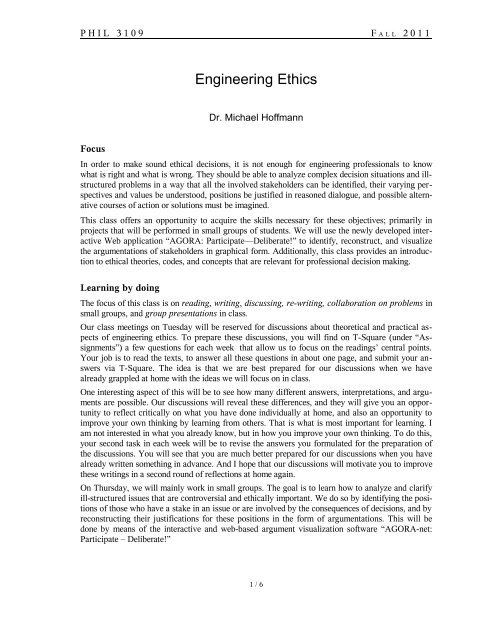
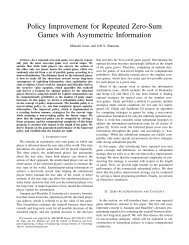
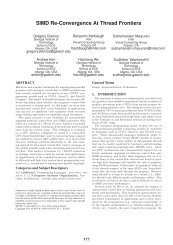
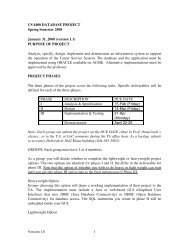
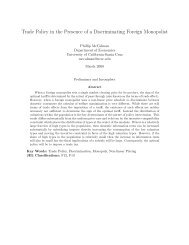
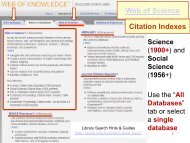
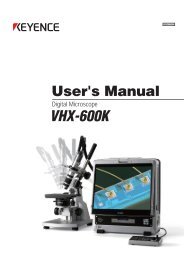
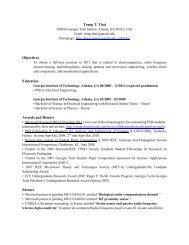
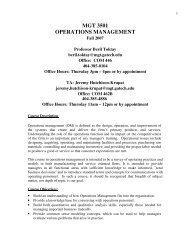
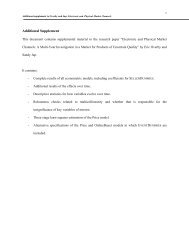

![Resume [pdf] - Prism Web Pages - Georgia Institute of Technology](https://img.yumpu.com/25493251/1/190x245/resume-pdf-prism-web-pages-georgia-institute-of-technology.jpg?quality=85)
